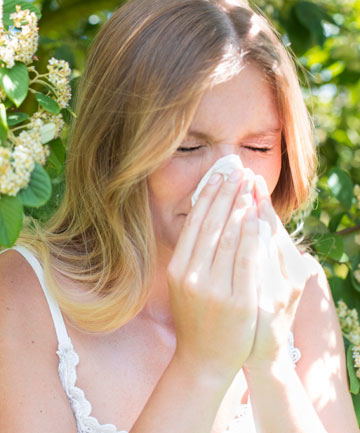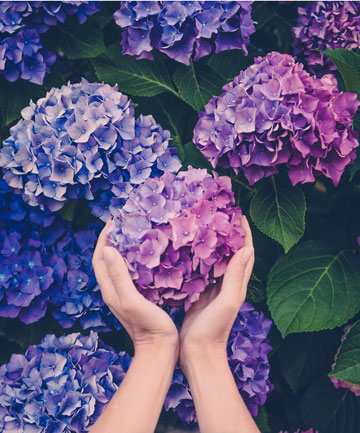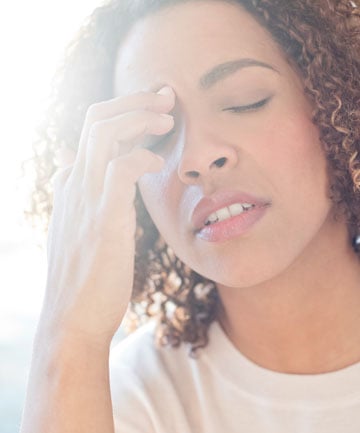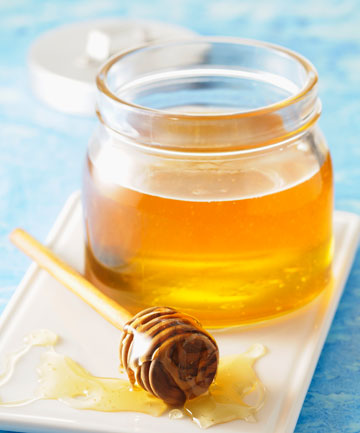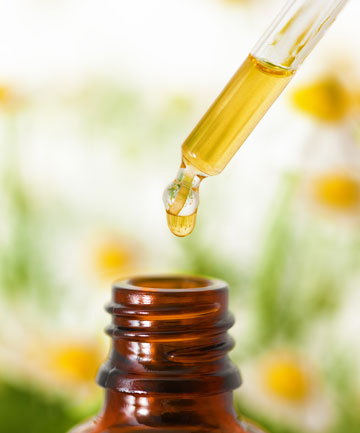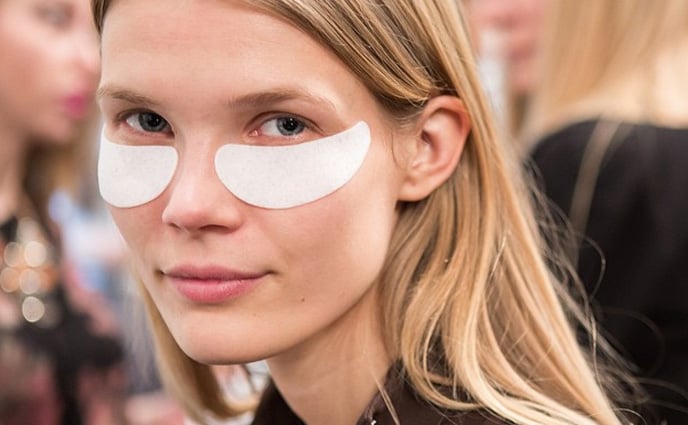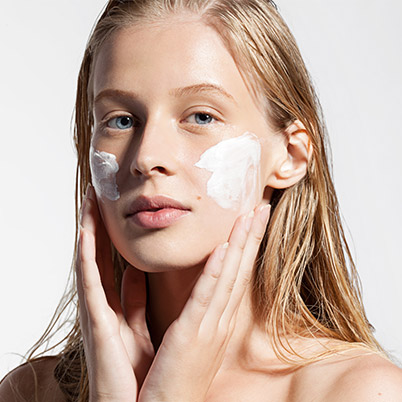Coughs, sniffles and itches — ugh. As allergy season continues to wreak havoc on the estimated 50 million Americans who suffer each season, finding a solution to ease your symptoms might sometimes feel frustrating and hopeless. "As seasons change, pollens are released into the air. Trees, grass, weed pollen, mold spores, bee venom, pet dander, among others, emit tiny particles into the air, which your immune system recognizes as a foreign substance. This can cause symptoms including itchy and watery nose, red and itchy eyes, runny and congested nose, sneezing, coughing, hives, rash or even severe anaphylaxis allergic reactions," explains Epitomedical chief medical officer and founder of the Vedius app, Constantine George, MD.
To help manage this uncomfortable time of year, it's important to be equipped with the right facts about treatment and suggestions from the pros. After all, you don't want to be blowing your nose and refilling your eyes with drops when you're traveling for a summer vacation or attending one of those countless weddings.
Here, the myth-breaking guide to spring allergies — with actual advice you can use to feel better ASAP.
Image via Getty
To help manage this uncomfortable time of year, it's important to be equipped with the right facts about treatment and suggestions from the pros. After all, you don't want to be blowing your nose and refilling your eyes with drops when you're traveling for a summer vacation or attending one of those countless weddings.
Here, the myth-breaking guide to spring allergies — with actual advice you can use to feel better ASAP.
Image via Getty
Truth: You're probably allergic to trees.
Stopping to smell the roses is fine advice but if you find the very thought of those pretty blooms sneeze-inducing — you may turn your nose up at the bushes. You might not need to, according to New York-based plastic surgeon, Dr. Ryan Neinstein. He says that colorful flowers, like roses, daffodils and sunflowers, tend to be heavier and stickier plants, which doesn't allow them to blow their pollen into the wind. Instead, he says the culprits that cause those watery eyes tend to be trees, weeds and grass. If you want to plant your garden, watch it grow and not be attacked by allergies, he suggests choosing flowers with low pollen and allergic potential. "The hydrangea plant is not only beautiful and comes in a variety of colors, but it is also a great choice for allergy sufferers. Lovers will marvel at the gorgeous pink, blue, white and purple flower heads that are naturally found in the northern climates."
Image via Getty
Stopping to smell the roses is fine advice but if you find the very thought of those pretty blooms sneeze-inducing — you may turn your nose up at the bushes. You might not need to, according to New York-based plastic surgeon, Dr. Ryan Neinstein. He says that colorful flowers, like roses, daffodils and sunflowers, tend to be heavier and stickier plants, which doesn't allow them to blow their pollen into the wind. Instead, he says the culprits that cause those watery eyes tend to be trees, weeds and grass. If you want to plant your garden, watch it grow and not be attacked by allergies, he suggests choosing flowers with low pollen and allergic potential. "The hydrangea plant is not only beautiful and comes in a variety of colors, but it is also a great choice for allergy sufferers. Lovers will marvel at the gorgeous pink, blue, white and purple flower heads that are naturally found in the northern climates."
Image via Getty
Truth: They can have long-term side effects.
Being protective about your health is advice you're given time and again but, like procrastinating deadlines until the ninth hour, you don't always take words of wisdom as you should. Spring allergies might be cumbersome for your day-to-day for a few months, but if you let them go without treating them, you could experience long-term side effects, according to allergist and chief medical officer of EHE, Dr. Tania Elliott. "Untreated allergic rhinitis can lead to the development of asthma, chronic sinus issues, sleep disturbances, obstructive sleep apnea and can cause a decrease in cognitive ability and productivity," she explains. "Be aware that in addition to the typical itchy eyes and runny nose, allergies can cause a foggy forgetful feeling, headaches, facial pain and pressure, fatigue, and sleepiness. If you experience this every spring, allergies may be the cause."
Image via Getty
Being protective about your health is advice you're given time and again but, like procrastinating deadlines until the ninth hour, you don't always take words of wisdom as you should. Spring allergies might be cumbersome for your day-to-day for a few months, but if you let them go without treating them, you could experience long-term side effects, according to allergist and chief medical officer of EHE, Dr. Tania Elliott. "Untreated allergic rhinitis can lead to the development of asthma, chronic sinus issues, sleep disturbances, obstructive sleep apnea and can cause a decrease in cognitive ability and productivity," she explains. "Be aware that in addition to the typical itchy eyes and runny nose, allergies can cause a foggy forgetful feeling, headaches, facial pain and pressure, fatigue, and sleepiness. If you experience this every spring, allergies may be the cause."
Image via Getty
Truth: You should take allergy medicine.
Ever have your grandmother shove a lick of honey in your direction in the middle of a sneeze-fest? Though her intentions were, ahem, sweet, Daniel Slaughter, MD, of Sinus & Snoring Specialists says it's not a solid way to rid of your ailments. "People have the idea that raw honey contains all of the spring pollens and therefore a dose a day orally will teach the body to make blocking antibodies," he explains. The advice is actually contrary, he notes, since studies have shown this is not effective because the honey mainly contains flower pollen which isn't allergenic. Instead? Opt for an over-the-counter allergy medicine that has potent ingredients that fight your symptoms.
Image via Getty
Ever have your grandmother shove a lick of honey in your direction in the middle of a sneeze-fest? Though her intentions were, ahem, sweet, Daniel Slaughter, MD, of Sinus & Snoring Specialists says it's not a solid way to rid of your ailments. "People have the idea that raw honey contains all of the spring pollens and therefore a dose a day orally will teach the body to make blocking antibodies," he explains. The advice is actually contrary, he notes, since studies have shown this is not effective because the honey mainly contains flower pollen which isn't allergenic. Instead? Opt for an over-the-counter allergy medicine that has potent ingredients that fight your symptoms.
Image via Getty
Fact: They sure do!
Much like any great medical debate, you might be wary to trust certain medicines and prescriptions when you — and your family — have been using the same ol' go-to for generations. Slaughter says many folks are under the impression that allergy drops aren't as effective as shots, but this less-invasive approach actually packs the same punch. "Well-formulated allergy drops made by the doctor's office are the best way to block your spring allergies because they are made based on skin testing. When taken daily under the tongue, a patient's allergies are typically controlled within six months," he explains.
Image via Getty
Much like any great medical debate, you might be wary to trust certain medicines and prescriptions when you — and your family — have been using the same ol' go-to for generations. Slaughter says many folks are under the impression that allergy drops aren't as effective as shots, but this less-invasive approach actually packs the same punch. "Well-formulated allergy drops made by the doctor's office are the best way to block your spring allergies because they are made based on skin testing. When taken daily under the tongue, a patient's allergies are typically controlled within six months," he explains.
Image via Getty


